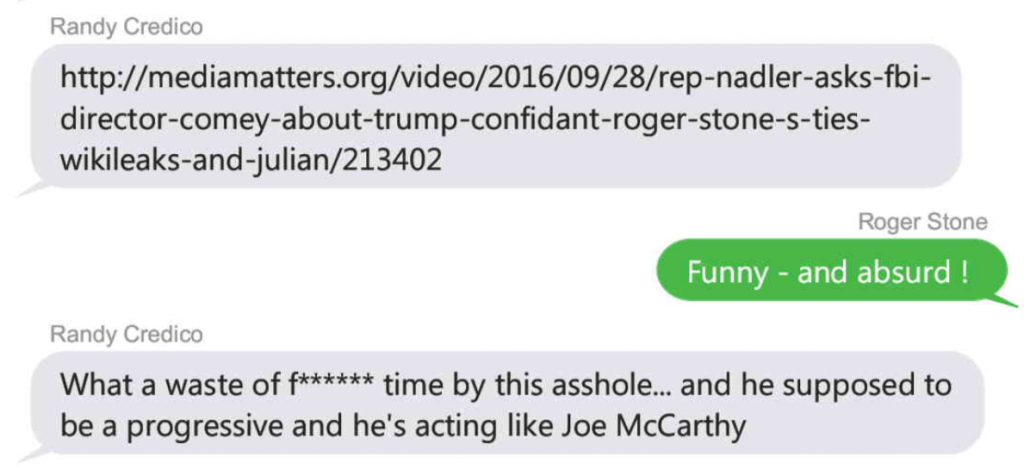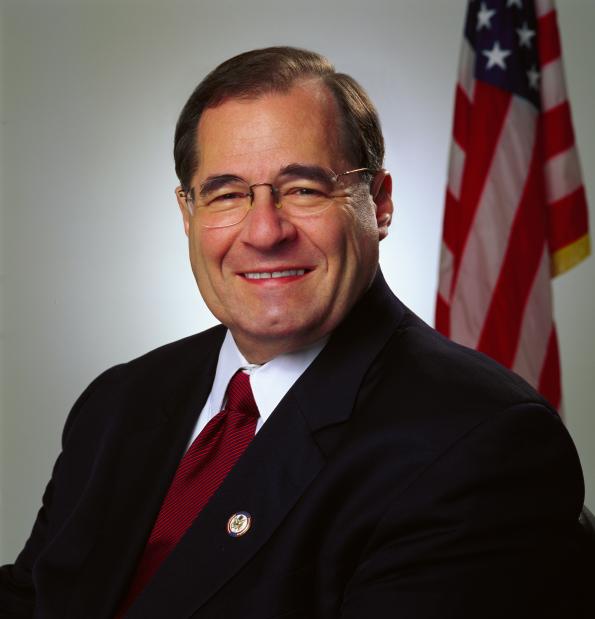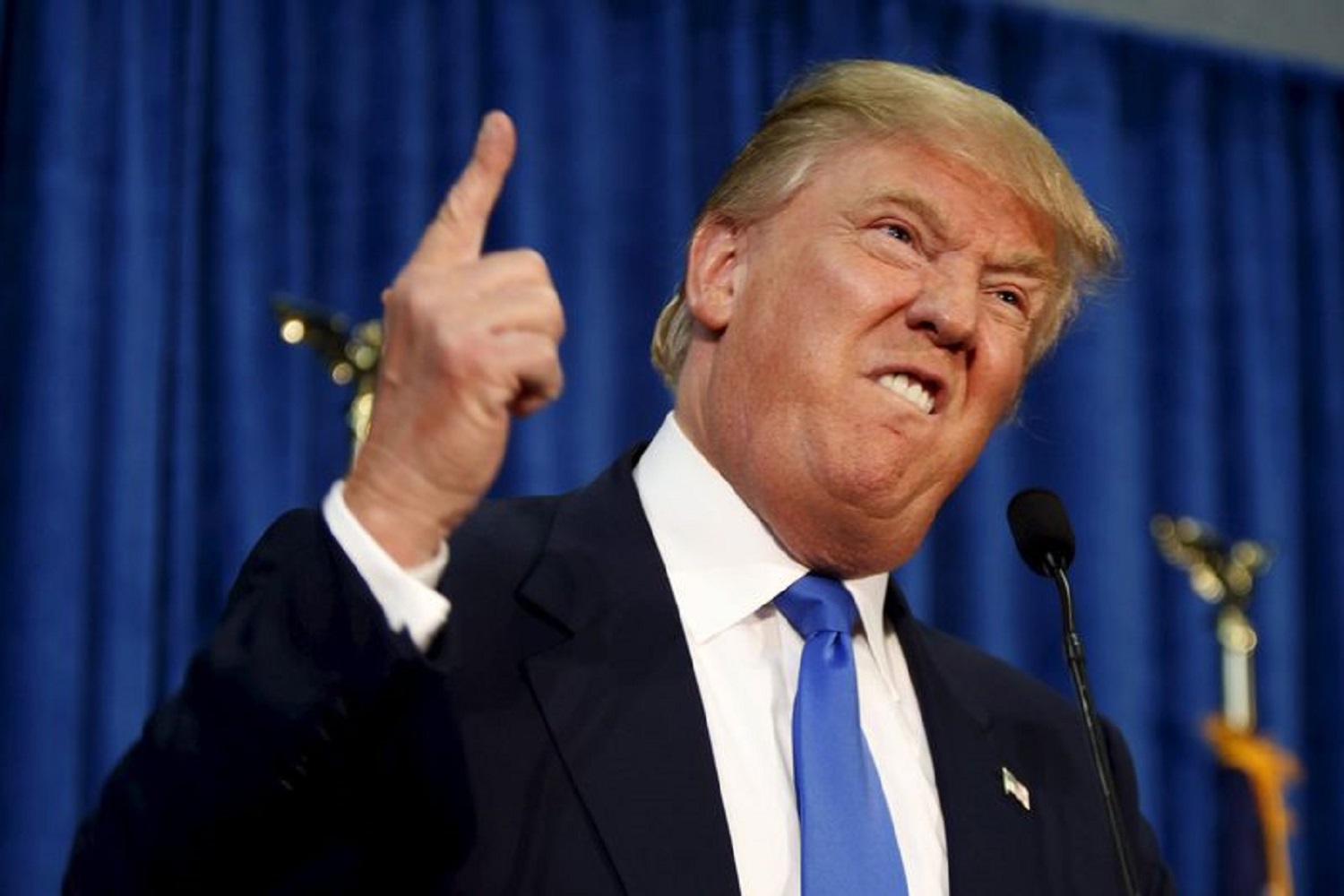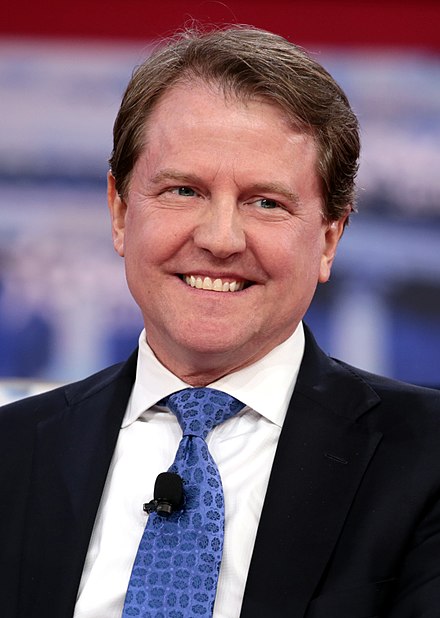The Trump-Mueller Answer the Stone Trial Really Implicates: Pardoning Assange
A bunch of media outlets responded to Rick Gates’ testimony in the Roger Stone trial — describing how Donald Trump got off a call with Roger Stone on August 31, 2016 and told him WikiLeaks would release more emails — by arguing that Gates’ testimony is proof that Trump lied to Robert Mueller about the subject.
I recall that in the months leading up to the election there was considerable media reporting about the possible hacking and release of campaign-related information and there was a lot of talk about this matter. At the time, I was generally aware of these media reports and may have discussed these issues with my campaign staff or others, but at this point in time – more than two years later – I have no recollection of any particular conversation, when it occurred, or who the participants were.
I do not recall being aware during the campaign of any communications between the individuals named in Question II (c) [Roger Stone, Donald Trump, Jr., Paul Manafort, or Rick Gates] and anyone I understood to be a representative of WikiLeaks or any of the other individuals or entities referred to in the question.
[snip]
I was in Trump Tower in New York City on October 7, 2016. I have no recollection of being told that WikiLeaks possessed or might possess emails related to John Podesta before the release of Mr. Podesta’s emails was reported by the media. Likewise, I have no recollection of being told that Roger Stone, anyone acting as an intermediary for Roger Stone, or anyone associated with my campaign had communicated with WikiLeaks on October 7, 2016.
I do not recall being told during the campaign that Roger Stone or anyone associated with my campaign had discussions with any of the entities named in the question regarding the content or timing of release of hacked emails.
I spoke by telephone with Roger Stone from time to time during the campaign. I have no recollection of the specifics of any conversations I had with Mr. Stone between June 1.2016 and November 8, 2016. I do not recall discussing WikiLeaks with him, nor do I recall being aware of Mr. Stone having discussed WikiLeaks with individuals associated with my campaign, although I was aware that WikiLeaks was the subject of media reporting and campaign-related discussion at the time.
But these are very carefully crafted answers, as they disclaim any memory of the requested details rather than — ever — claiming they didn’t happen. Unlike Trump’s answers on Trump Tower Moscow, he did not subsequently make clear he has distinct memories of Roger Stone’s boasts about having advance knowledge of WikiLeaks releases, both publicly and in private calls with Trump.
So I don’t really think that’s the most important Trump response given evidence presented at the Stone trial. Rather, a more potentially damning one pertains to the way a shared support for Julian Assange lurks behind the relationship between Randy Credico, Margaret Ratner Kunstler, and Roger Stone.
Credico wanted — and still wants — to rebut any “collusion” claims
Credico had long been hostile to any investigation of Stone’s ties to Assange. When Jerry Nadler started asking questions (of Jim Comey) about Stone’s ties to Assange in September 2016, Credico accused Nadler of McCarthyism.
In early January, 2018, Credico texted to Stone that he would do an interview with Michael Isikoff to make it clear that Assange was “not colluding.”
Much later — indeed, to this day — Credico would go to great lengths to try to rebut claims that Assange was “colluding.”
Credico’s WikiLeaks focus in responding to the subpoena
When HPSCI asked for first voluntary then compelled testimony. Credico responded by sharing the subpoena with a network of people — including Craig Murray, Ray McGovern, Jess Radack, Thomas Drake, Bill Binney, Stefania Maurizi, Colleen Rowley, and Noam Chomsky — with an affinity and in many cases close ties to WikiLeaks. Stone was, at that point, just one of 18 people Credico thought to alert, and the defense made much of the other recipients of Credico’s email releasing the subpoena.
Credico would go on to do as Stone had requested in response to the subpoena, plead the Fifth to avoid testifying before the House Intelligence Committee. On the stand at trial, Credico explained that a “lot of people” had a role in that decision, “amongst them, Mr. Stone.”
The defense, however, tried to suggest that Kunstler (who testified she represented WikiLeaks as an organization and had represented Sarah Harrison for four years) had a role in this decision. They got Credico to admit that Kunstler gave him legal advice, but was not his lawyer. And they got Kunstler to admit that she said she was at a meeting with several lawyers when Credico got a subpoena. That falls far short of saying she advised him to dodge the subpoena, but that’s certainly what the defense tried to insinuate.
Even if she had suggested that Credico, who is a friend of hers, should avoid testifying, none of that is untoward (it’d be the equivalent of bmaz telling me to shut the fuck up about any of my own legal issues, which he does constantly). It just suggests that Credico’s immediate focus in 2017 was on protecting Assange, not necessarily protecting Stone.
The shared interest in pardoning Assange
But this whole relationship was intertwined with an apparent shared interest in pardoning Assange. Right in the middle of Credico’s claims about what WikiLeaks was up to in early October 2016, for example, on October 3, he pushed Stone to get Trump to back asylum for Assange.
Then there are the exchanges on the topic that MoJo reported on a year ago from early January 2018.
In the wake of Stone’s successful effort to get Credico to plead the Fifth, the President’s rat-fucker suggested that if Credico publicly revealed that he couldn’t be Stone’s back channel, it might screw up efforts he claimed he was making to get Assange a pardon.
They resumed the discussion about a pardon several days later, when Stone sent Credico Jerome Corsi’s story on Ecuador’s grant of a diplomatic passport to Assange.
Remarkably, given what has transpired since, Credico informed Stone that the British government was not honoring the diplomatic passport, observed that “Infowars ” — which in this case would be Corsi — “doesn’t know what they’re talking about,” then taunted, ‘Maybe your back Channel knows more than I do.”
The current operative story, of course, is that Corsi was the backchannel, though Credico wouldn’t have known that at the time.
It’s certainly possible that Stone was blowing smoke, raising something he knew Credico cared deeply about, pardoning Assange, to get him to toe the line. It’s likely, too, he was just taking reporting on efforts made in late 2017 to liberate Assange and claiming credit for it.
But at the very least, it shows that Stone used a pardon for Assange — something Credico still spends a lot of time pushing — as leverage to try to get Credico to sustain his cover story.
Kunstler was a key point of pressure for Stone
Which is one of the reasons I find the new details about how Stone’s threatened Kunstler to be interesting.
Per evidence submitted at trial, Stone used several different tactics to pressure Credico to testify (or not) in certain ways, including:
- Telling him to take the Fifth
- Telling him to pull a Frank Pentangeli (meaning, to testify falsely)
- Offering to pay for his lawyer in late 2017
- Sending him some work in early 2018
- Threatening Bianca (a threat Credico said he didn’t take very seriously)
- Making threats of violence of exposure
- Threatening Margaret Kunstler
Ultimately, per his testimony, Credico changed his stance on testifying so as not to be Stone’s fall-guy (and because he didn’t want to be blamed for Trump’s election). But according to (live texts of) his testimony, a really big part of that change was that Stone threatened Kunstler. Credico testified he, “didn’t want to drag her name though this.”
On March 10, 2018, Stone responded to Credico alerting him that he was going to go on Chris Hayes’ show by forwarding the September 2016 email chain in which Credico feigned helping Stone figure out if WikiLeaks had certain Libya-related emails and threatening, “If you go on with Chris Hayes be sure to mention this,” which would have exposed that Credico did at least appear to respond to Stone’s request for help. On May 21, 2018, Stone responded to a Credico email saying “you should have just been honest with the house intel committee” by threatening, “Keep running your mouth and I’ll file a bar complaint against your friend Margaret.”
Mostly, raising Kunstler would invoke two details Stone knew about. First, some time on or before August 25, 2016, Kunstler passed on Credico’s request to have Assange on his drive time show. She was the person who got WikiLeaks to consider the August 25, 2016 interview that lay a the core of Credico and Stone’s wavering claims that Credico might have inside knowledge. On the stand, Kunstler said that was the first and only time she passed on a request to WikiLeaks on Credico’s behalf.
Then, after some badgering from Stone, on September 2016, Credico sent her the package of information Stone had shared on what he claims was an effort by Hillary to prevent Moammar Qaddafi from stepping down to avoid the Libyan war, BCCing Stone. Significantly, Stone’s lawyers made a point of getting Kunstler to clarify that she did not learn that email had been BCCed with Stone until prosecutors showed it to her in an interview. And it’s true that nothing about the package would have identified it as a Roger Stone smear.
Kunstler testified that she ignored the email and got pretty pissed about it, because that’s not the kind of thing she would do with clients.
Those two details made it clear that Kunstler was Credico’s link to Assange, that she had succeeded in sharing a request from Credico when it served Assange’s interest, but that she wouldn’t consider serving as a source of information about Assange and upcoming leaks.
But in a little noticed response, Credico revealed that he put Stone in touch with Kunstler after the election to talk about a pardon for Julian Assange. I double checked. That happened in late 2016.
Again, there’s absolutely nothing untoward about this. Kunstler represented WikiLeaks and any smart lawyer would push for a pardon for her client. Credico’s relationship with Stone was already public (though it’s unclear whether Kunstler knew of the whole back channel stuff yet, given that she may not have known the Libya request came from Stone). But it adds an important wrinkle to the year-long Trump flunkie effort to get Assange a pardon.
We know that sometime after the October 2016 WikiLeaks dump, Mike Flynn was part of a conversation where Trump’s team discussed reaching out to WikiLeaks (something that didn’t get mentioned at all at Stone’s trial). Credico’s introduction of Kunstler to Stone would have come around the same time that Assange himself DMed Don Jr asking to become an Ambassador of sorts.
Hi Don. Hope you’re doing well! In relation to Mr. Assange: Obama/Clinton placed pressure on Sweden, UK and Australia (his home country) to illicitly go after Mr. Assange. It would be real easy and helpful for your dad to suggest that Australia appoint Assange ambassador to DC “That’s a really smart tough guy and the most famous australian you have! ” or something similar. They won’t do it, but it will send the right signals to Australia, UK + Sweden to start following the law and stop bending it to ingratiate themselves with the Clintons. 12/16/16 12:38PM
Assange renewed that request as part of his Vault 8-based extortion in November 2017.
All of which is to say there’s one more instance where someone in Trump’s orbit discussed a pardon for Assange. Because it involved Kunstler, it tied the discussion even more closely to Stone’s claims to have optimized WikiLeaks’ releases.
That may be one explanation for Stone’s lawyers’ efforts to make it clear that Kunstler couldn’t have known that Stone had made a request that got presented to her, because that would make it look like a quid pro quo, a request for Stone to return the favor.
Trump may have told the truth — but that doesn’t rule out a quid pro quo with WikiLeaks
Which leads me to the Mueller question that I think most enticingly ties to details revealed at trial.
Trump was asked whether he had ever discussed a pardon for Julian Assange before his inauguration, and he offered the same kind of non-responsive answer he offered to all the other Mueller questions.
Did you have any discussions prior to January 20, 2017, regarding a potential pardon or other action to benefit Julian Assange? If yes, describe who you had the discussion(s) with, when, and the content of the discussion(s).
I do not recall having had any discussion during the campaign regarding a pardon or action to benefit Julian Assange.
Notably, however, because Trump adhered to a practice he inconsistently used (in answering questions only as they applied to the campaign, but not the transition), his answer doesn’t actually deny a key possibility: that he and Stone (and Don Jr) discussed a pardon for Assange during the transition period.
This doesn’t even have to be an instance where Trump did not recall something that happened during the election. If Trump entertained a Stone brokered pardon request in the months after Assange helped him win the election, it would be easily the most damning of Trump’s many abuses of clemency, because it would appear to be a clear quid pro quo for election assistance.
As I disclosed last year, I provided information to the FBI on issues related to the Mueller investigation, so I’m going to include disclosure statements on Mueller investigation posts from here on out. I will include the disclosure whether or not the stuff I shared with the FBI pertains to the subject of the post.











